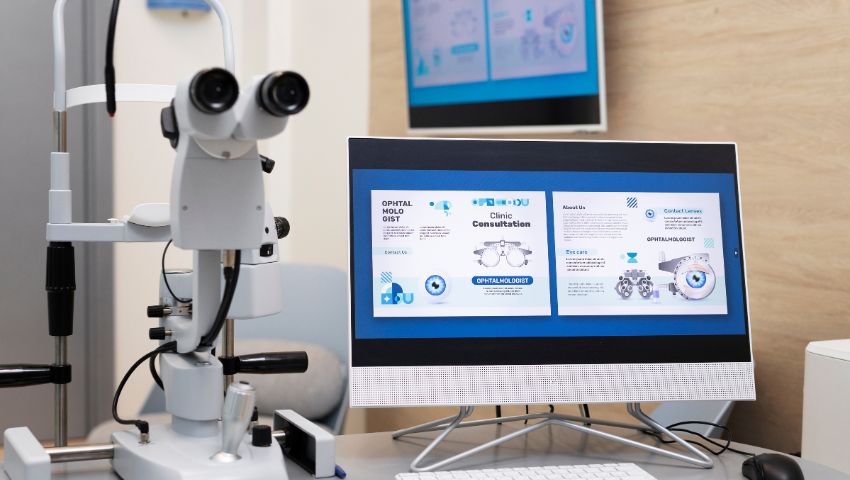
Table of Contents
- Introduction
- Why Patient Trust Depends on Data Security
- What Is Encrypted and Audit-Ready Data Security?
- How Encryption Protects Patient Records
- The Role of Audit-Ready Systems in Compliance
- Benefits for Patients and Clinics
- Challenges in Implementation
- Best Practices for Healthcare Providers
- FAQs
- Conclusion
Introduction
In healthcare, patient trust is built not only on medical expertise but also on how well personal data is protected. With rising cases of cyberattacks and privacy breaches, patients want assurance that their sensitive information is safe. Encrypted and audit-ready data security provides that assurance by safeguarding records, ensuring compliance and reinforcing the trust patients place in their providers.
Why Patient Trust Depends on Data Security
When patients share their medical history, lab reports or fertility records, they expect complete confidentiality. A single breach can undermine years of trust. Data security is therefore not just a compliance measure—it’s a core element of patient confidence in modern healthcare systems.
What Is Encrypted and Audit-Ready Data Security?
Encrypted and audit-ready systems combine two powerful protections:
- Encryption: Ensures data is unreadable to unauthorized parties.
- Audit readiness: Provides a complete, traceable log of all data activities.
Together, these features secure information while enabling accountability and compliance with regulations like HIPAA and GDPR.
How Encryption Protects Patient Records
Encryption acts as a digital shield. Patient data is converted into code that can only be decrypted with authorized keys. Even if hackers access the system, the stolen data remains unusable. This prevents misuse and maintains confidentiality across storage, transmission, and sharing.
The Role of Audit-Ready Systems in Compliance
Audit-ready systems maintain a transparent log of every data interaction—who accessed it, when and for what purpose. This not only supports compliance with legal frameworks but also enables healthcare providers to demonstrate accountability, a factor that reassures patients about how their data is being handled.
Benefits for Patients and Clinics
Encrypted and audit-ready data security delivers advantages for both sides:
- Builds patient trust by protecting sensitive information.
- Supports compliance with global privacy regulations.
- Prevents data misuse and internal breaches.
- Enhances transparency with audit logs.
- Strengthens clinic reputation in the digital healthcare era.
Challenges in Implementation
Adopting secure systems comes with obstacles:
- High upfront investment for advanced technologies.
- Integration issues with legacy systems.
- Need for staff training on privacy protocols.
- Ongoing monitoring to keep pace with evolving threats.
A strategic approach with phased adoption can help clinics overcome these barriers effectively.
Best Practices for Healthcare Providers
To strengthen patient trust with encrypted and audit-ready systems, providers should:
- Encrypt all stored and transmitted patient data.
- Use multi-factor authentication for access.
- Apply role-based permissions to limit exposure.
- Conduct regular compliance audits.
- Review audit logs to detect anomalies.
- Educate staff on privacy and security best practices.
FAQs
1. Why is encryption vital for patient trust?
Encryption ensures that even if data is intercepted, it cannot be read without proper authorization, protecting confidentiality.
2. How do audit-ready systems help compliance?
They provide transparent logs of data access and modifications, which regulators require for compliance checks.
3. Can smaller clinics implement these systems affordably?
Yes. Cloud-based encrypted and audit-ready platforms make secure systems accessible to smaller providers.
4. What happens if a clinic lacks audit-ready systems?
It risks non-compliance, higher breach vulnerability and loss of patient trust.
5. Does data security impact clinic reputation?
Absolutely. Patients trust clinics more when they know their sensitive health data is handled with strict security measures.
Vitrify Pricing Plans
| 20 – 50 License | 50 – 100 License | 100+ License | |||
| Perfect for growing clinics needing flexible, scalable IVF management and secure operations. | Ideal for mid-sized clinics managing high patient volumes with seamless efficiency and care. | Built for large clinics demanding powerful, enterprise-level IVF solutions and complete scalability. | |||
| $19.99 Month/License |
$219.99 Year/License |
$17.99 Month/License |
$197.99 Year/License |
$15.99 Month/License |
$175.99 Year/License |
|---|---|---|---|---|---|
| ✔Appointment Scheduling | ✔Appointment Scheduling | ✔Appointment Scheduling | |||
| ✔Couple Registration | ✔Couple Registration | ✔Couple Registration | |||
| ✔Patient Records Management | ✔Patient Records Management | ✔Patient Records Management | |||
| ✔Basic Reporting | ✔Basic Reporting | ✔Basic Reporting | |||
| ✔Basic Invoicing | ✔Basic Invoicing | ✔Basic Invoicing | |||
| ✔Email Reminders | ✔Email Reminders | ✔Email Reminders | |||
| ✔SMS Reminders* | ✔SMS Reminders* | ✔SMS Reminders* | |||
| ✔WhatsApp Reminders* | ✔WhatsApp Reminders* | ✔WhatsApp Reminders* | |||
| ✔Essential Support | ✔Essential Support | ✔Essential Support | |||
| ✔MIS Reporting | ✔MIS Reporting | ✔MIS Reporting | |||
| ✔IVF Medical Record Management | ✔IVF Medical Record Management | ✔IVF Medical Record Management | |||
| ✔ART Cycle Management | ✔ART Cycle Management | ✔ART Cycle Management | |||
| ✔IVF Procedure Recording | ✔IVF Procedure Recording | ✔IVF Procedure Recording | |||
| ✔Basic Billing | ✔Basic Billing | ✔Basic Billing | |||
| ✔Limited Data Export (PDF) | ✔Limited Data Export (PDF) | ✔Limited Data Export (PDF) | |||
Conclusion
Encrypted and audit-ready data security is more than a compliance tool—it is a foundation for building patient trust. By protecting sensitive information and demonstrating accountability, clinics strengthen relationships and prepare for the future of secure digital healthcare.
At Vitrify, we help healthcare and IVF providers strengthen patient trust through encrypted, access-controlled and audit-ready solutions. Our secure IVF clinic management software ensure compliance with global data privacy regulations while protecting sensitive medical records. With Vitrify, clinics gain the tools they need to deliver care built on safety, privacy and trust.